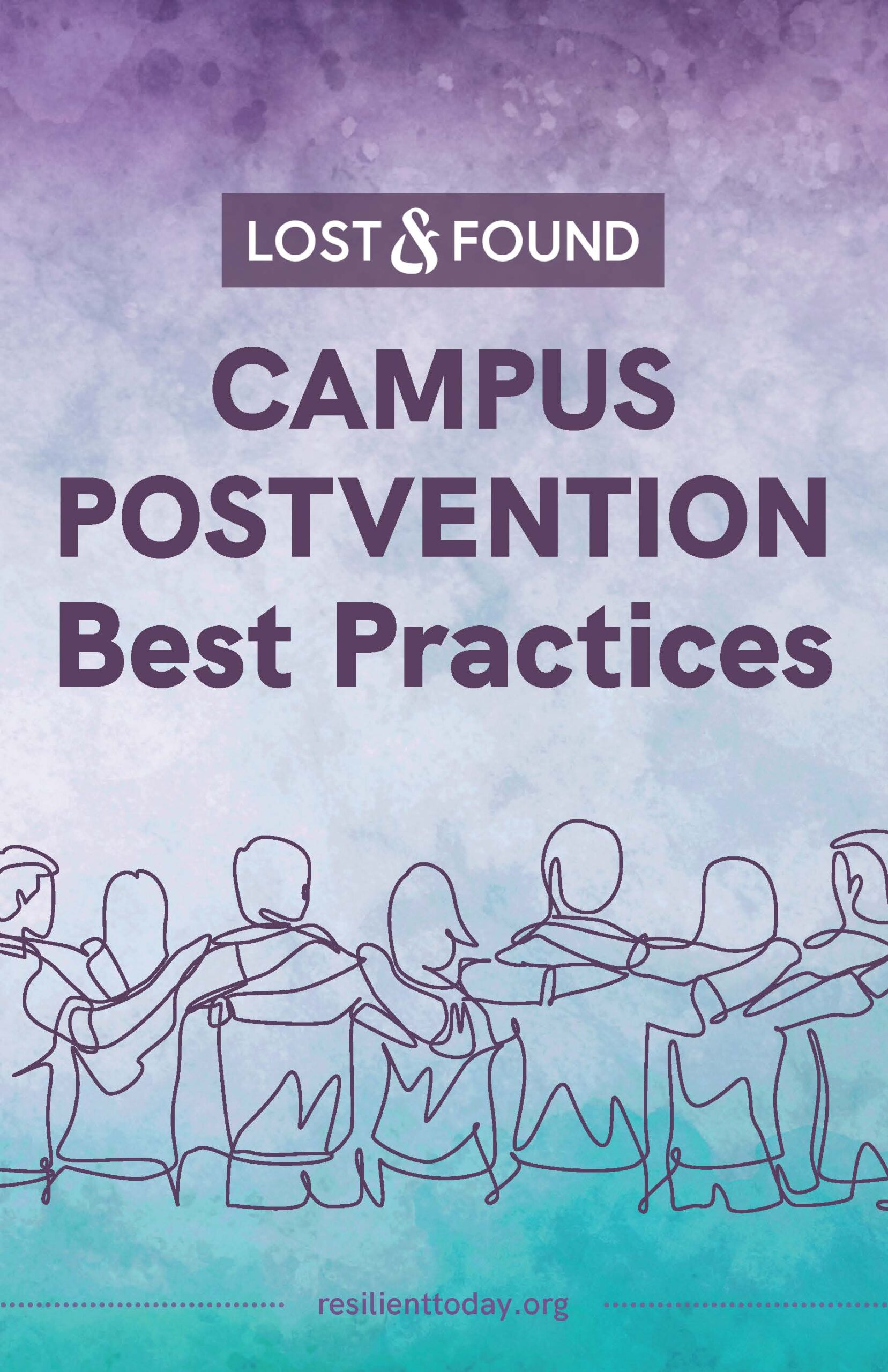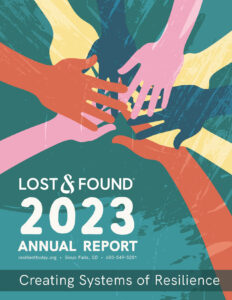2023 Annual Report: L&F supports campuses, families facing suicide loss
Guide helps campuses address suicide loss
As our mission implores us to do, in 2023 we started “doing more” to support college campuses facing a suicide loss.
As our team jumped into action to support a S.D. college campus that experienced multiple suicides in one semester, we realized that some of the resources that schools desperately need after a suicide didn’t exist. While researchers have developed comprehensive toolkits to support the work of postvention policy for K-12 schools, college campuses, and workplaces, we learned that these toolkits lack a simple action plan. Administrators needed clear, easy-to-implement guidance on how to develop postvention policies, and if the policies weren’t yet in place, how to address and contain the crisis of a suicide death on campus. We used the best-practice materials to create the straightforward guide these schools needed to support their campus community and develop policies. This guide that we developed is called the Campus Postvention Best Practices Guide. The information itself is not new, just optimally formatted for clarity and ease of use.
The goal of our work through the HB1079 funding is to use and continue to improve this guide to help campuses find a starting point in the daunting task of developing a comprehensive suicide response plan. In 2024, we will continue to walk alongside campuses as they tailor these policies to their unique community needs. We are proud of the progress we have made thus far in filling this significant gap in services and look forward to reporting significant completed policy change across SD college campuses this year.
—Dakotah Jordan, Education & Postvention Manager
Would you like to review a copy of the guide? Email djordan@resilienttoday.org.
Program addresses need for suicide loss support
2023 marked the first full year of the Survivors Joining for Hope program being part Lost&Found.
Significant progress was made in spreading the word across the state. We shared information about the program by adding it to our tabling materials at campuses and conferences, as well as taking the opportunity to speak about the program on conference stages and within organizations.
We also made updates to our application to better determine the additional needs of our participants and started collecting more data on the impact our program was making. This year we served 13 families and provided $30,446 in financial support for things such as funeral/cremation costs and lawyer fees. We helped participants find resources for additional needs such as rent assistance, utility assistance, diapers, lawyer services, housing, counseling, peer support groups, medical expenses and more. One hundred percent of participants surveyed reported that this program reduced financial stress, was a source of support, and lifted their spirits during their time of loss.
We continue to work on how to make this program sustainable for the long term. To support staffing costs, we are still using the community health worker grant funding from the state of South Dakota that helped us get this program off the ground, but that funding runs out in May 2024. We have submitted our application to Medicaid to reimburse the services of this program. We are hopeful that this process will allow us to continue helping those with the most critical needs across our state.
To support the financial assistance fund, we received funding from the Sioux Empire United Way and the Center for Disaster Philanthropy. An endowment fund to support SJ4H has also been started through the South Dakota Community Foundation, which includes a matching challenge with a time period of two years.
—Dakotah Jordan, Education & Postvention Manager
Read more in the 2023 annual report.

